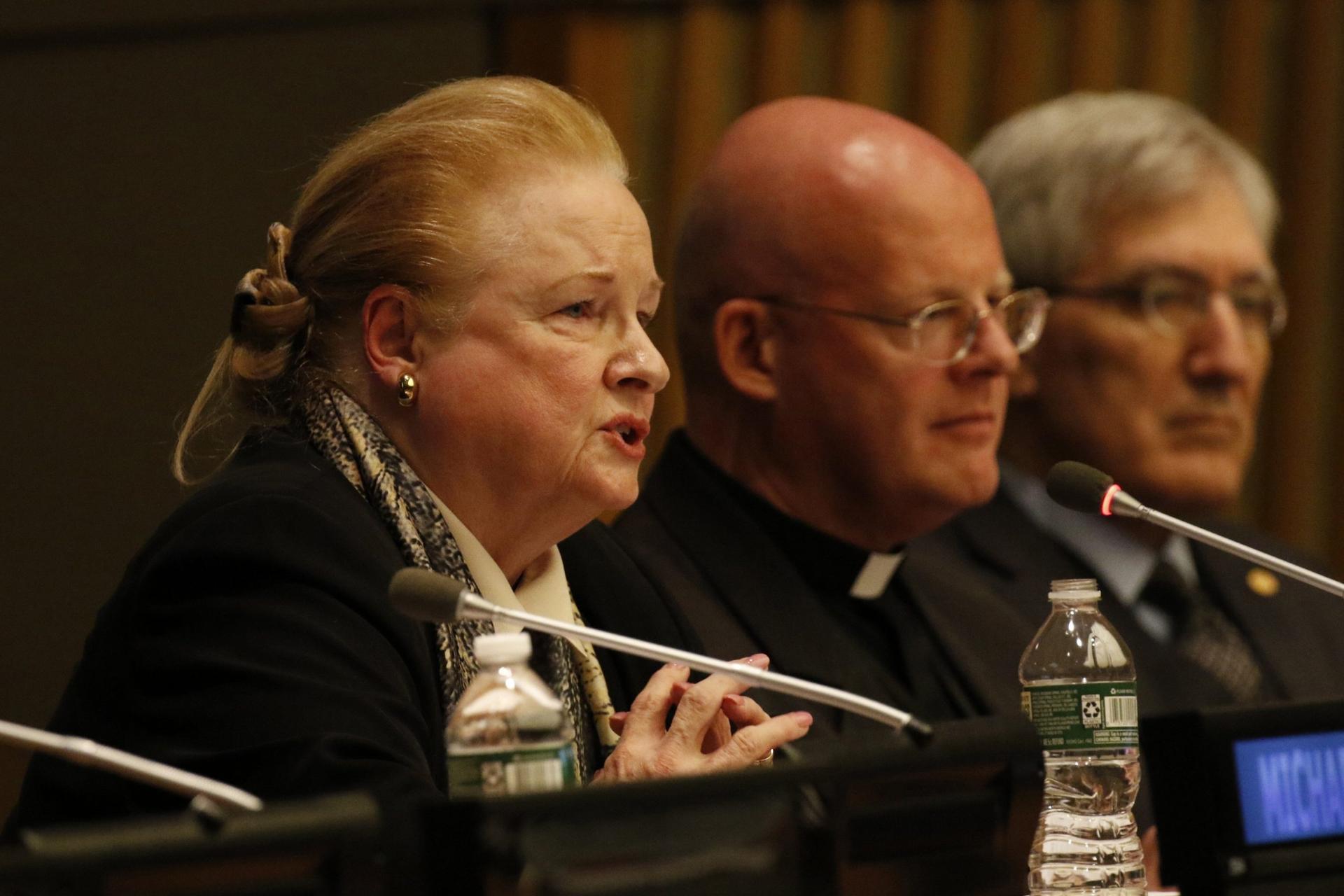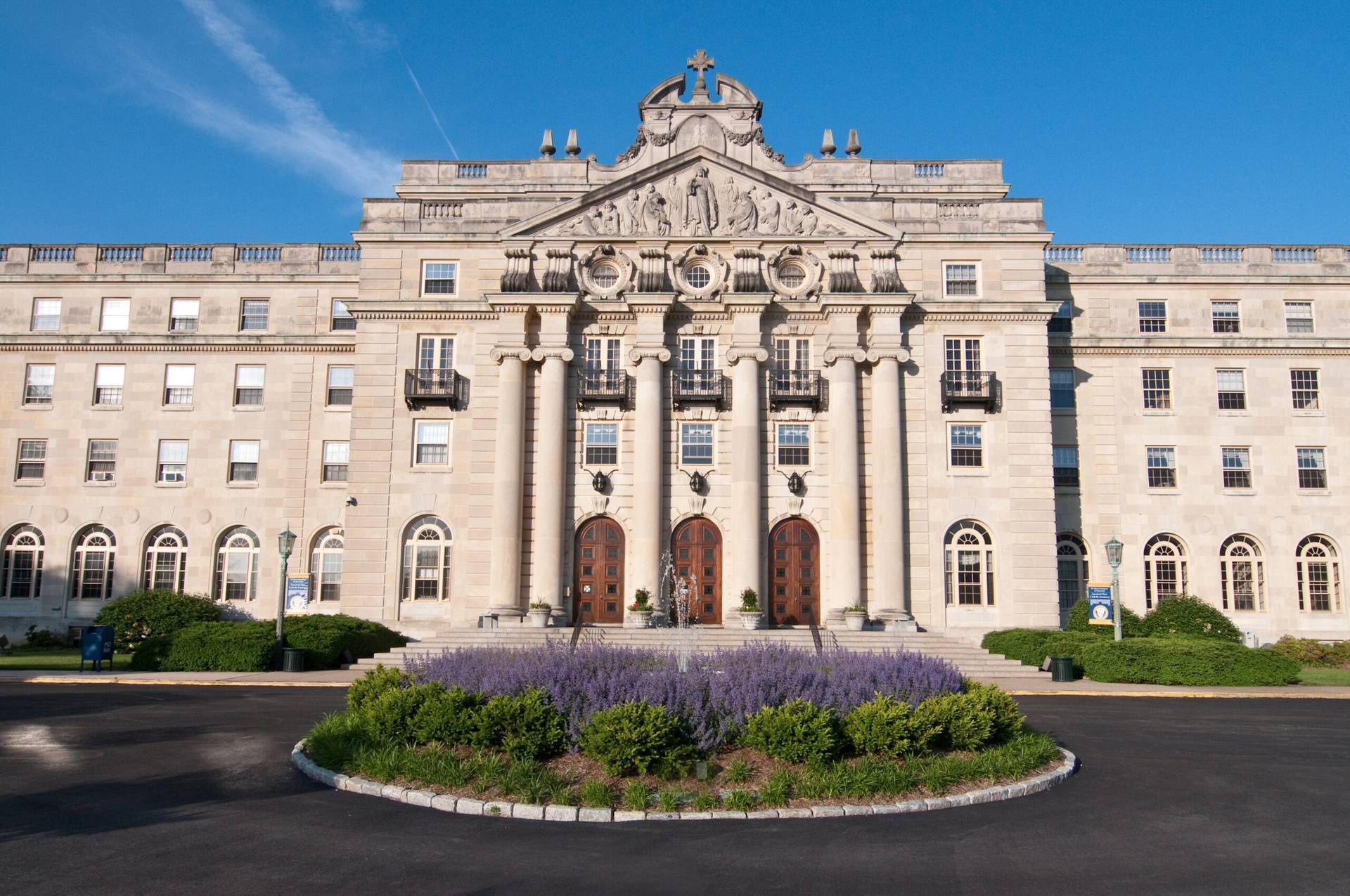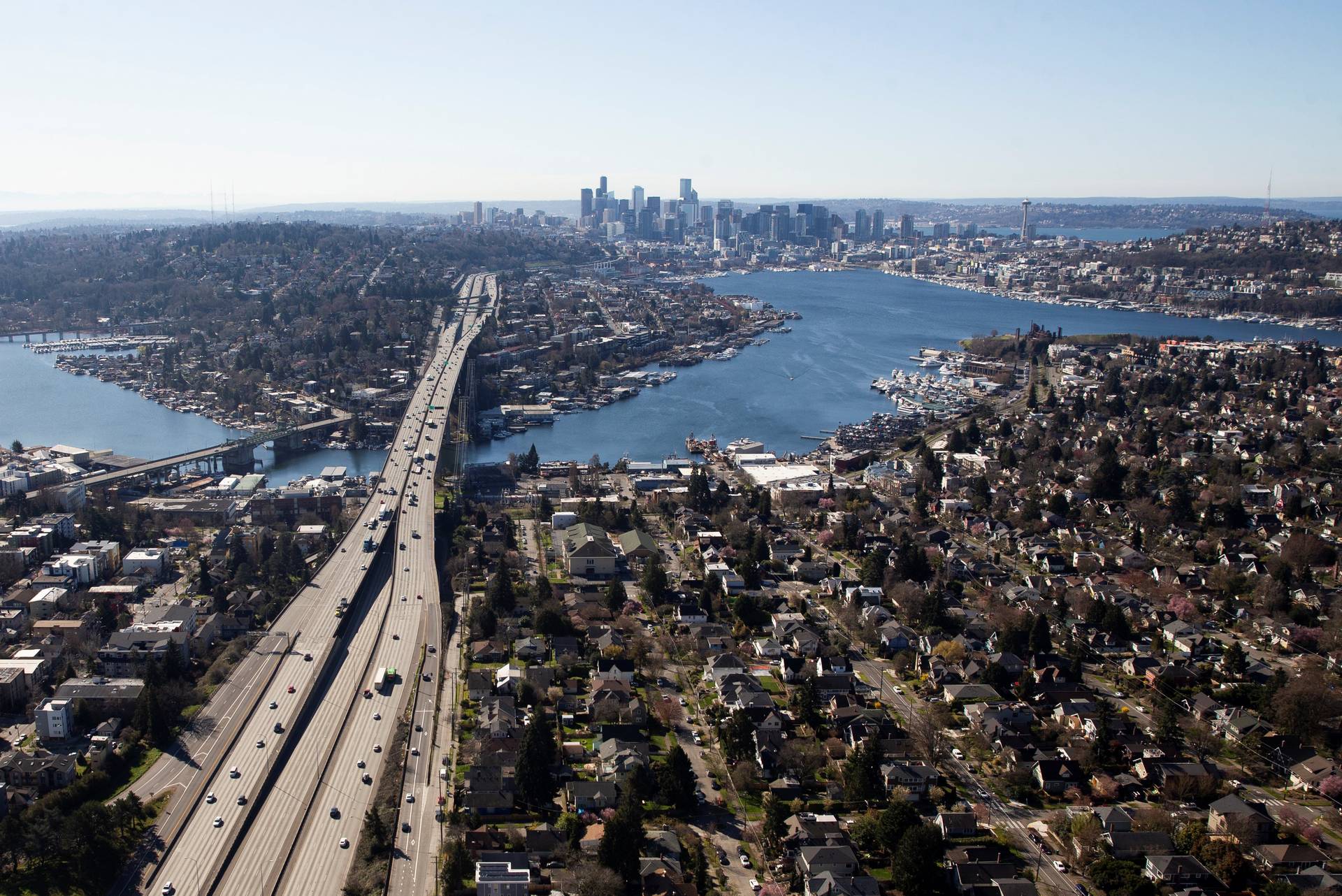RYE, New York — The pillars of the United Nations overlap the tenets of Catholic social teaching and from the inception of the U.N. in 1945, the church has encouraged the international organization while simultaneously reproving it when it drifts from its lofty goals.
Speakers at an Oct. 22 virtual panel discussion addressed the complex relationship between the Catholic Church and the U.N.
Archbishop Gabriele Caccia, Vatican ambassador to the United Nations, said during the Second World War, Pope Pius XII promoted formation of a worldwide institution to foster peace, security, stability and justice by protecting human dignity, defending the family, work and social unity, rehabilitating the judicial order and supporting the concept of states that serve rather than subjugate.
The nuncio said the pope envisioned the organization would adhere to the principles of solidarity, subsidiarity and the common good.
Mary Ann Glendon, former U.S. ambassador to the Holy See, traced the Catholic influence on the U.N.’s central document, the Universal Declaration of Human Rights, which was adopted in 1948.
She said the Latin American delegation comprised 22 of the 51 original members of the U.N. and formed the largest single bloc. Latin America was a predominantly Catholic region.
The declaration’s drafters relied on formulations developed for the earlier so-called Bogota Declaration, the first general international human rights instrument. The Bogota Declaration drew heavily on Pope Leo XII’s 1891 encyclical “Rerum Novarum” (“On Capital and Labor”), Glendon said.
Archbishop Angelo Roncalli, the Vatican’s ambassador to postwar France and the future Pope John XXIII, lobbied discreetly for the passage of the declaration, Glendon said.
Caccia said the four establishing pillars of the U.N. overlap with Catholic social teaching. There are “deep convergences and sympathies” between the goals of the U.N. and the work of the Catholic Church, he said.
And while the United Nations embodies high ideals that have often been ardently defended by the Holy See, it has not always lived up to its potential to represent the deepest human yearnings for cooperation, he added.
When the U.N. Charter was finalized, Pope Pius XII expressed concern that it continued an unequal wartime alliance, excluded many states from membership and lacked anything beyond persuasion with regard to its resolutions. Caccia said all of the wartime pope’s concerns have been validated over the past 75 years.
The Vatican participated in discussions of many U.N. committees and became a permanent observer state in 1964. This status gives the Holy See all of the rights and responsibilities of member states except the right to vote, to sponsor resolutions and to nominate candidates for U.N. positions.
Caccia said popes addressing the U.N. General Assembly have repeatedly expressed esteem for the institution, the need for its constant reform, the overlap between its goals and the church’s purposes, and its position as a school of peace.
He said visiting popes also have urged the U.N. to live up to its commitments, seek justice and promote the dignity of every person.
Caccia said the U.N. should follow the example of the good Samaritan and be moved to action by the wounds of the world. “You can’t pretend to be safe in your world if there is injustice. You have to make choices. Do you pass by or do you feel concerned and stop to take care?” he asked.
Glendon said the U.N. could benefit from the Catholic understanding of pluralism, in which a small core of principles are brought to life in different ways. “We bear witness to a distinct understanding of the human person,” she said.
There is a tension between moral witness and political pressure at the U.N., she said, and the Catholic contribution is always the most durable when the tension is resolved in favor of moral witness.
“Catholics are like the leaven in the loaf,” Glendon said. They can challenge the status quo and point out that political and economic rights are not at odds with social and human rights, she said.
Joseph Donnelly, Caritas International delegate to the U.N., said faith-based nongovernmental organizations are highly regarded at the U.N. by most member states because they are committed to local communities.
“We have an engagement in the world, we are there with the people” and bring to the table “the voices of the people we serve,” he said. Caritas is the second largest humanitarian network in the world after the Red Cross, he said.
Donnelly said faith-based organizations experience subsidiarity “from the ground up” and can “go to the periphery” to bring back stories and information others may not seek.
The panel was co-sponsored by the Lumen Christi Institute at the University of Chicago, the Permanent Observer Mission of the Holy See to the U.N., America Media and the University of Notre Dame’s Kellogg Institute for International Affairs. It was moderated by Paolo Carozza, director of the Kellogg Institute.
On Oct. 21, Caccia addressed a virtual event focused on a faith-based vision for the United Nations. He said the world is profoundly religious, with 85 percent of people professing faith in God and affiliated with a religion.
He noted the Universal Declaration of Human Rights proclaims freedom of religion. He said the fundamental freedom should impose a duty on the international community to respect, value and protect the right.
Caccia said many of the U.N.’s priorities would not be implemented if it were not for “people on the ground motivated by love of God and of neighbor.”
But this faith-based vision is threatened by attacks on believers around the world and occasionally from within the U.N. system, he said, “as some are attempting to restrict religious freedom in order to promote other so-called ‘human rights’ that are not in the Universal Declaration, do not enjoy consensus and are clearly against the beliefs of most world religions.”
“Some are trying to reduce religious freedom to freedom of worship, intending to limit faith to what one does in private at home or in places of worship rather than letting faith overflow into daily life and into works,” the archbishop said. “People of faith and faith-based organizations must be on guard.”















